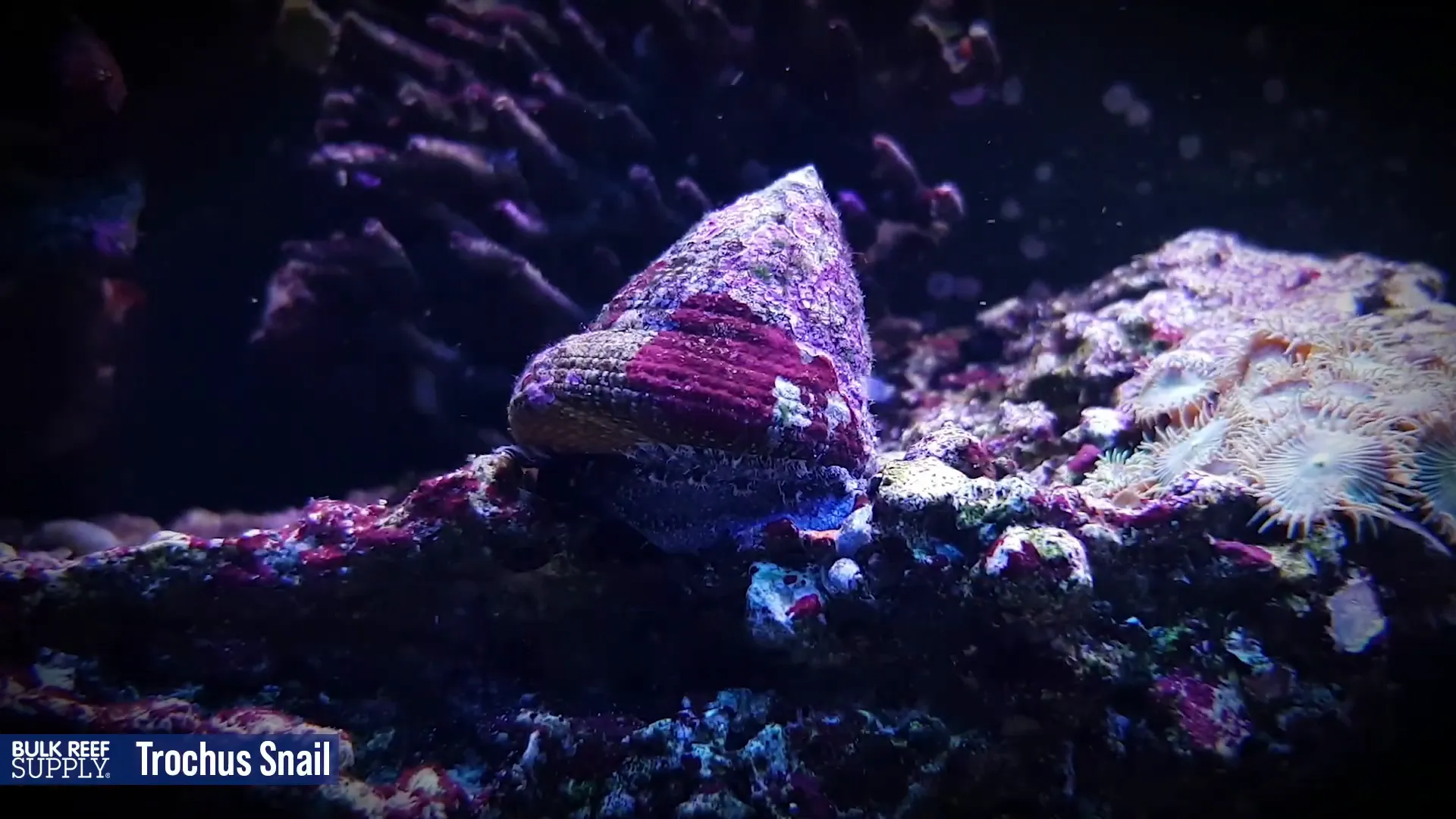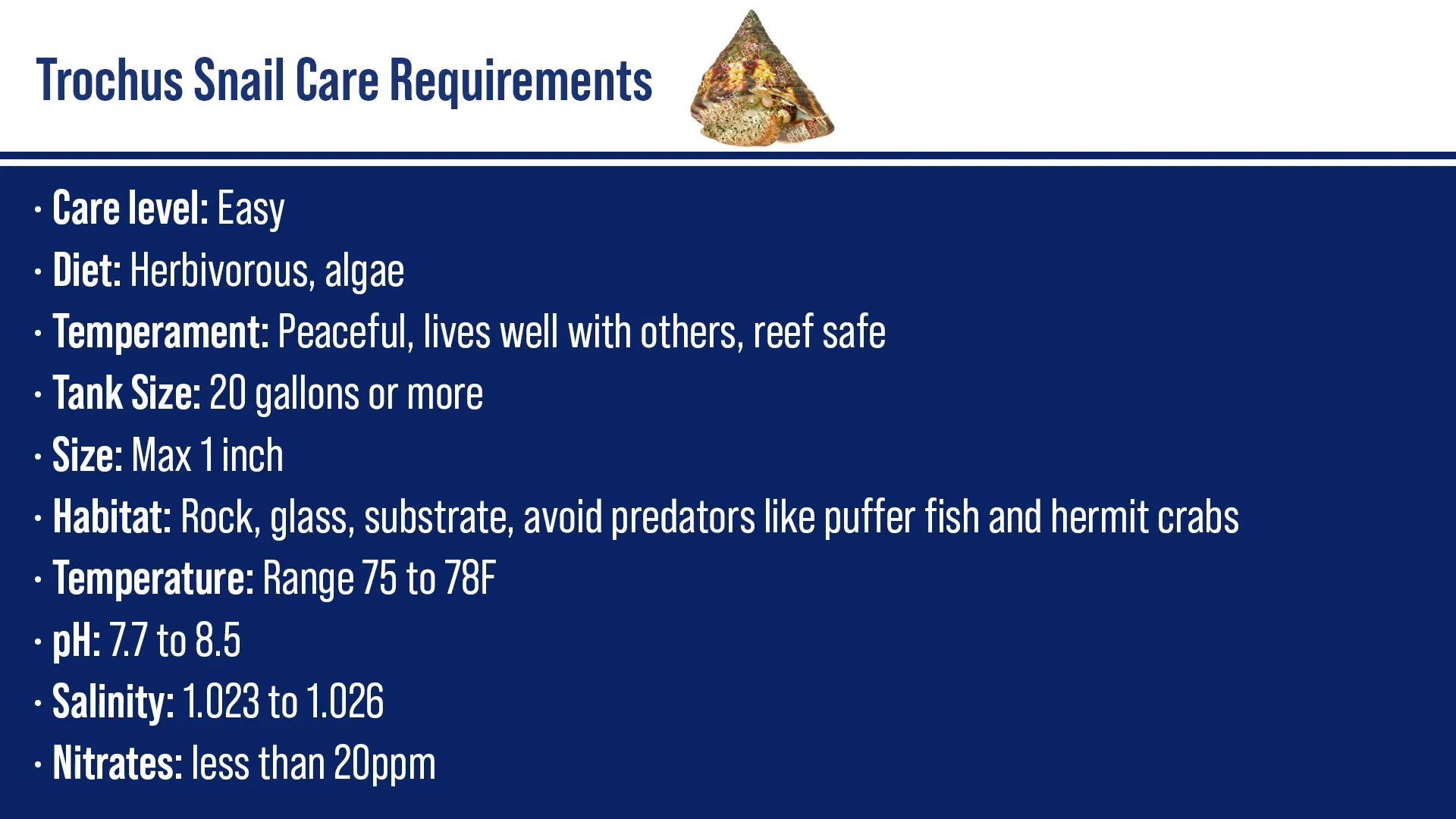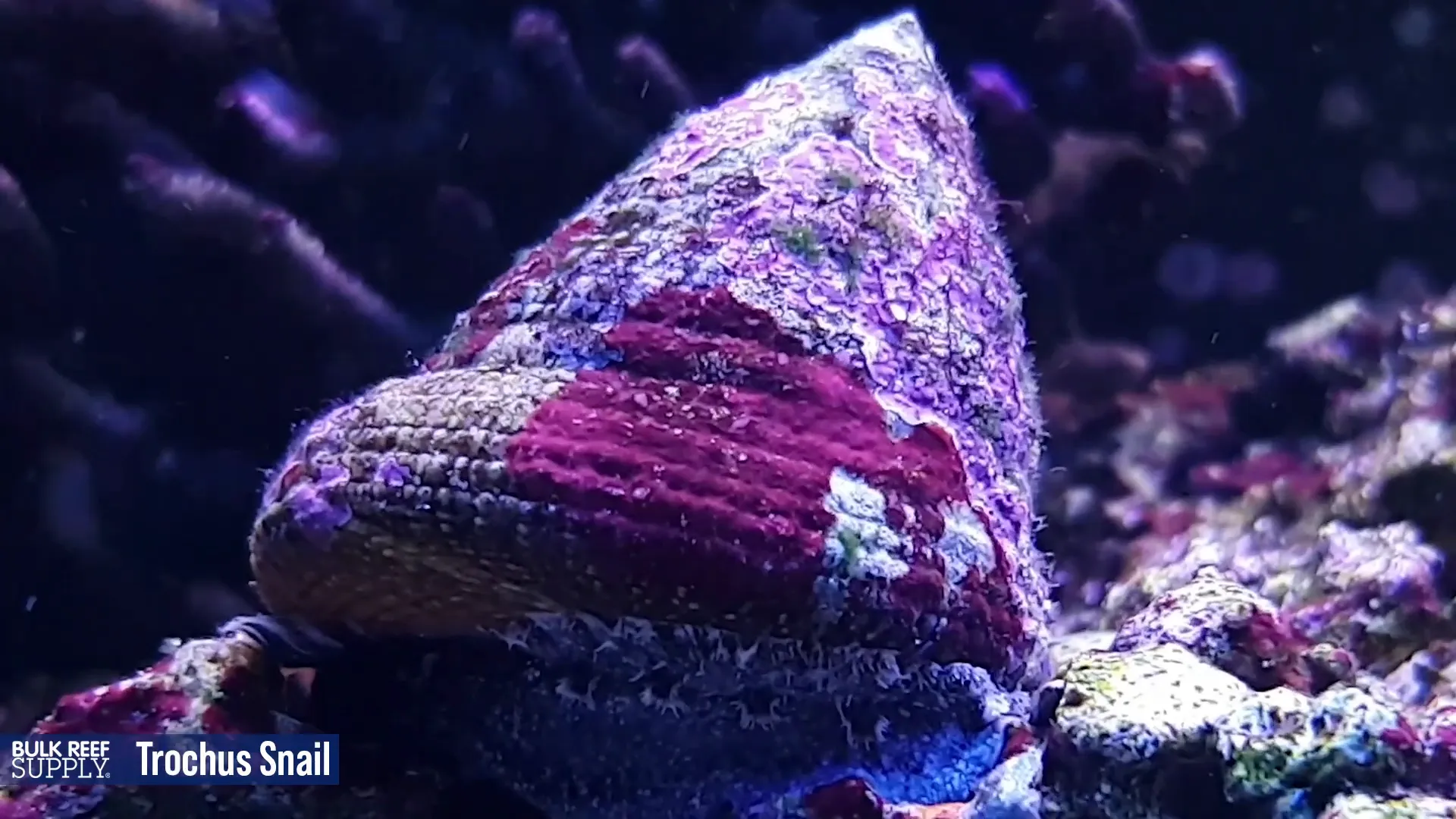Trochus Snail Care Tips Every Reefer Needs to Know!
The trochus snail is a remarkable addition to any reef tank, known for its algae-eating abilities and unique characteristics. Not only do these snails help maintain a clean environment, but they also possess the extraordinary ability to right themselves if they fall. This blog will dive into everything you need to know about trochus snail care, including their habitat, diet, compatibility, and more!
Table of Contents
- Understanding Trochus Snails
- Care Requirements for Trochus Snails
- Tank Requirements for Trochus Snails
- The Benefits of Trochus Snails
- Potential Challenges
- Conclusion
- FAQs about Trochus Snails
Understanding Trochus Snails
Trochus snails are hardy, reef-safe snails that play a vital role in the cleanup crew of your aquarium. They are primarily herbivores, grazing on algae found on the glass, rocks, and substrate, ensuring your tank remains spotless. Let's explore some key facts about these fascinating creatures.
Quick Facts about Trochus Snails
- Common Names: Trochus snail, Turbo snail, Top shell snail
- Scientific Names: Trochus spp.
- Size: Up to 1 inch
- Minimum Tank Size: 20 gallons (75 liters)
- Reef Safe? Yes
- Care Level: Easy
- Diet: Herbivore
Care Requirements for Trochus Snails
When it comes to caring for trochus snails, the requirements are quite straightforward. They are considered easy to care for, making them perfect for both novice and experienced aquarists.
Diet and Feeding
Trochus snails primarily feed on algae, and in established tanks, supplemental feeding is rarely needed. Their herbivorous diet consists mainly of:
- Green algae
- Cyanobacteria
- Diatoms
These snails excel at controlling algae growth, so you can often rely on them to maintain a clean tank without additional food sources.

Temperament and Compatibility
Trochus snails are peaceful and won’t harm other tank mates or corals. They are considered reef-safe, meaning they can coexist with various coral types, including soft, LPS, and SPS corals. However, be cautious of potential predators like pufferfish and hermit crabs that may pose a threat to your trochus snails.

Tank Requirements for Trochus Snails
For a thriving trochus snail population, ensure your tank meets the following criteria:
Tank Size
Trochus snails are suitable for tanks that are at least 20 gallons. This size allows them ample space to graze and explore.
Habitat
Provide a variety of surfaces for grazing, including:
- Rocks
- Glass
- Substrate
These surfaces will help them thrive and stay active in your aquarium.
Water Parameters
Maintaining optimal water conditions is crucial for the health of your trochus snails. The ideal parameters include:
- Temperature: 75°F to 78°F
- pH: 7.7 to 8.5
- Salinity: 1.023 to 1.026
- Nitrate: Less than 20 parts per million

The Benefits of Trochus Snails
Trochus snails combine utility and hardiness, making them a staple for any cleanup crew. Their ability to flip themselves over if they fall is a significant advantage, reducing the need for constant monitoring and intervention from aquarists. This unique trait also helps them survive longer in the aquarium environment.
Potential Challenges
While trochus snails are generally hardy, there are a few challenges to be aware of:
- Watch for predators like hermit crabs that may steal their shells.
- Ensure water conditions are stable, as fluctuations can stress the snails.
Conclusion
Trochus snails are an exceptional addition to any reef tank, providing both aesthetic appeal and practical benefits. Their algae-eating prowess and ability to coexist peacefully with other marine life make them a must-have for any aquarist. By following the care tips outlined in this blog, you'll create an ideal environment for your trochus snails to thrive.

FAQs about Trochus Snails
1. How many trochus snails should I have in my tank?
A good rule of thumb is to have one trochus snail for every 20 gallons of water in your tank.
2. Can I keep trochus snails with other snails?
Yes, trochus snails can coexist with other snail species like cerith snails or turbo snails, making for a diverse cleanup crew.
3. How do I introduce trochus snails to my tank?
Introduce trochus snails gradually, ensuring your tank is fully cycled and stable before adding them to avoid stress.
4. Do trochus snails reproduce in captivity?
Yes, they can reproduce in captivity, but the survival rate of young snails can be low due to predation from other tank inhabitants.
5. What should I do if my trochus snail is flipped over?
While they can right themselves, if you notice a snail flipped over for an extended period, gently assist it back onto its base to avoid stress.
Source and credits: This article was inspired by the amazing content creator. All credits for the video and images go to; Bulk Reef Supply. Visit their channel for more fantastic content.

























